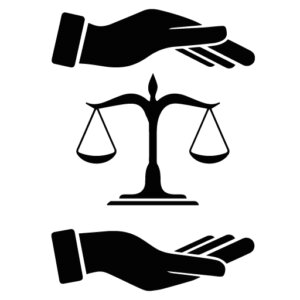Best International Trade Law Lawyers in Santo Domingo
Share your needs with us, get contacted by law firms.
Free. Takes 2 min.
List of the best lawyers in Santo Domingo, Dominican Republic
About International Trade Law in Santo Domingo, Dominican Republic
International Trade Law in Santo Domingo, Dominican Republic, is designed to regulate the exchange of goods and services across international borders. It encompasses several aspects of law including trade agreements, tariffs, import and export regulations, and intellectual property rights. The Dominican Republic is part of several free trade agreements like the CAFTA-DR (Central America-Dominican Republic Free Trade Agreement), which helps facilitate trade with the United States and Central American countries. The country's strategic location in the Caribbean makes it a significant hub for trade, necessitating a comprehensive understanding of International Trade Law.
Why You May Need a Lawyer
Seeking legal assistance in International Trade Law is crucial in various situations. Businesses often require guidance on compliance with local and international trade regulations to avoid legal pitfalls. Legal experts can assist in negotiating and drafting contracts, handling disputes, and ensuring compliance with trade agreements. Individuals or businesses dealing with import and export operations, facing customs issues, or intellectual property disputes may also require expert legal guidance to navigate complex legal structures and safeguard their interests.
Local Laws Overview
Several key aspects of local laws in Santo Domingo, Dominican Republic, are pertinent to International Trade Law. The Customs Code governs import and export activities, setting out duties, taxes, and procedures for goods entering or leaving the country. Additionally, the Dominican Republic's adherence to international treaties influences domestic trade laws. Intellectual Property Law provides protection for patents, trademarks, and copyrights, which is crucial for businesses involved in trade. Compliance with these local laws is critical for the smooth operation of international trading activities.
Frequently Asked Questions
What are the main regulations affecting imports and exports in the Dominican Republic?
The main regulations include the Customs Code, which outlines the procedures and taxes for imports and exports, and other relevant international trade agreements like CAFTA-DR.
Do I need a license to import goods into the Dominican Republic?
Yes, depending on the type of goods being imported, an import license may be required. It is important to verify the specific requirements for each product category.
What are the common trade agreements the Dominican Republic is part of?
The Dominican Republic is part of several trade agreements including CAFTA-DR, the EPA (Economic Partnership Agreement) with the European Union, and agreements under the WTO (World Trade Organization).
How does the Dominican Republic Customs Authority regulate trade?
The Customs Authority manages the enforcement of customs regulations, the collection of import duties, and the facilitation of legitimate trade while ensuring compliance with national and international laws.
Are there any special incentives for foreign investors in the Dominican Republic?
Yes, there are several incentives, including free trade zones that offer tax benefits and other incentives aimed at attracting foreign investment.
What are the penalties for non-compliance with trade laws in the Dominican Republic?
Penalties for non-compliance can include fines, confiscation of goods, and revocation of licenses, among others. Severe violations could lead to legal actions and damage to business reputation.
How are trade disputes usually resolved in the Dominican Republic?
Trade disputes can be resolved through negotiation, arbitration, or litigation, depending on the nature of the dispute and the agreements in place between the parties involved.
What role does intellectual property law play in international trade?
Intellectual property law protects inventions, trademarks, and copyrighted materials, ensuring the rights of creators and facilitating trade by preventing misuse and counterfeiting.
Can local laws affect international trade agreements?
Yes, local laws can affect international trade agreements by determining how they are implemented and enforced within the country, influencing operations and compliance requirements for businesses involved in trade.
How can I find out more about specific trade regulations?
Consulting with a legal expert in international trade law or contacting relevant governmental bodies can provide detailed information on specific trade regulations.
Additional Resources
For further information and assistance, individuals and businesses can reach out to the Ministry of Industry and Commerce, Customs Authority (Dirección General de Aduanas), and the Dominican Confederation of Small and Medium Enterprises. Other resources include consulting legal firms specializing in International Trade Law and trade associations like the American Chamber of Commerce of the Dominican Republic.
Next Steps
If you need legal assistance in International Trade Law, start by identifying your specific needs. Whether it is compliance advice, contract negotiations, or dispute resolution, selecting a law firm or lawyer with expertise in international trade is essential. Schedule consultations to discuss your situation and ensure you understand their experience and fees. Continuous updates on local laws and participation in industry seminars and workshops can also provide valuable insights and strengthen your understanding of the trade landscape in the Dominican Republic.
Lawzana helps you find the best lawyers and law firms in Santo Domingo through a curated and pre-screened list of qualified legal professionals. Our platform offers rankings and detailed profiles of attorneys and law firms, allowing you to compare based on practice areas, including International Trade Law, experience, and client feedback.
Each profile includes a description of the firm's areas of practice, client reviews, team members and partners, year of establishment, spoken languages, office locations, contact information, social media presence, and any published articles or resources. Most firms on our platform speak English and are experienced in both local and international legal matters.
Get a quote from top-rated law firms in Santo Domingo, Dominican Republic — quickly, securely, and without unnecessary hassle.
Disclaimer:
The information provided on this page is for general informational purposes only and does not constitute legal advice. While we strive to ensure the accuracy and relevance of the content, legal information may change over time, and interpretations of the law can vary. You should always consult with a qualified legal professional for advice specific to your situation.
We disclaim all liability for actions taken or not taken based on the content of this page. If you believe any information is incorrect or outdated, please contact us, and we will review and update it where appropriate.















